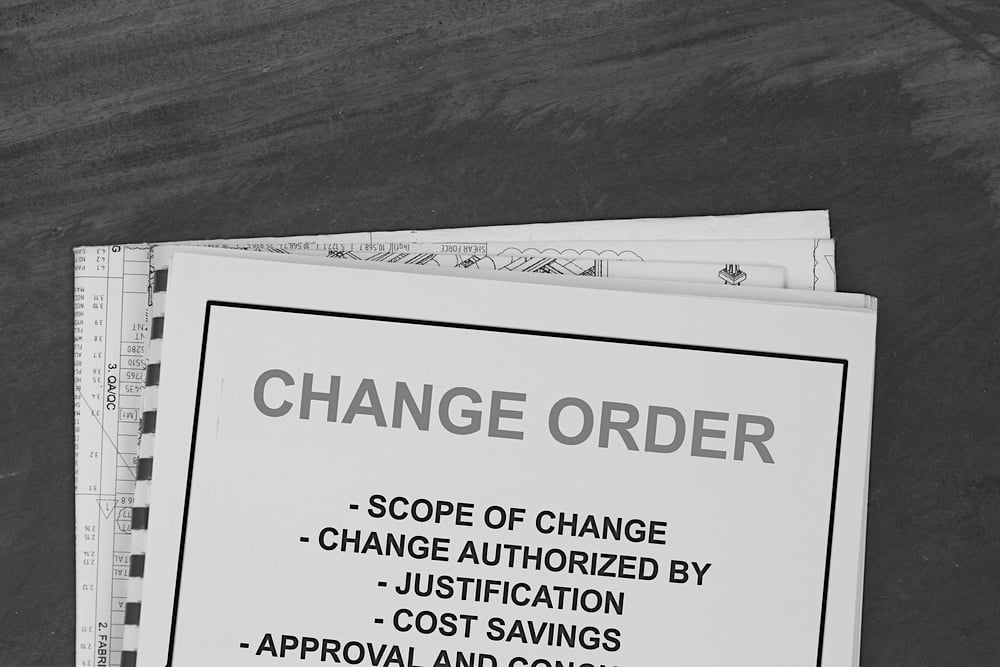
A change order is work that is added or eliminated from the original scope of work of a construction contract. This may positively or negatively change the contract amount or the completion date of the project. Change orders are common, and it is rare for a construction project to be completed without any changes to the original scope of work.
How is a change order made?
The contractor or owner may propose a change order, but such a proposal is not sufficient enough for one to be actually issued. For this to happen, there needs to be a bilateral agreement between the owner and the contractor about what changes need to happen. This bilateral amendment to the original contract is the only way to incorporate the change order into the contract. Further, these contract amendments must then be incorporated into the individual contract of all other involved parties such as subcontractors, vendors, and suppliers.
What causes a change order to occur?
There can be a number of factors that give rise to a change order. Errors and Omissions in the construction documents and specifications is one such factor. This is when there is inadequate detail or misrepresentation in plans and drawings. Naturally, it is the Architect’s duty to prevent Errors and Omissions, but construction projects are complex undertakings and it is virtually impossible to eliminate them in their entirety.
Contractors must exercise thorough due diligence in reviewing drawings and specifications and promptly notify the owner if there is a problem with the construction documents or other constructibility issues. This notification would then initiate a change order if the design does in fact need revision.
How do substitutions work with change orders?
Material or equipment substitutions can also be considered a change order, even if it is only a small deviation from the construction specifications. Contracts often substitute material when a specified material is unavailable or if there is an alternative product or material that performs the intended purpose but may be more advantageous for a variety of reasons.
Frequently, the rationale for a substitution is cost savings and as such a change order here may be a reduction in the value of the construction contract. Regardless if the price is impacted, the contract must be amended by change order to permit contractually the substitution of the product or material. Failure to modify the contract to allow the substitution can place the contractor in breach of the contract for not following the specifications.
Change orders are a common occurrence on construction projects. Make sure you know how they will affect you. If you have any questions about change orders or other insurance coverages, give TSIB a call today at 201-267-7500!
image credit: RAGMA IMAGES/shutterstock.com


Comments